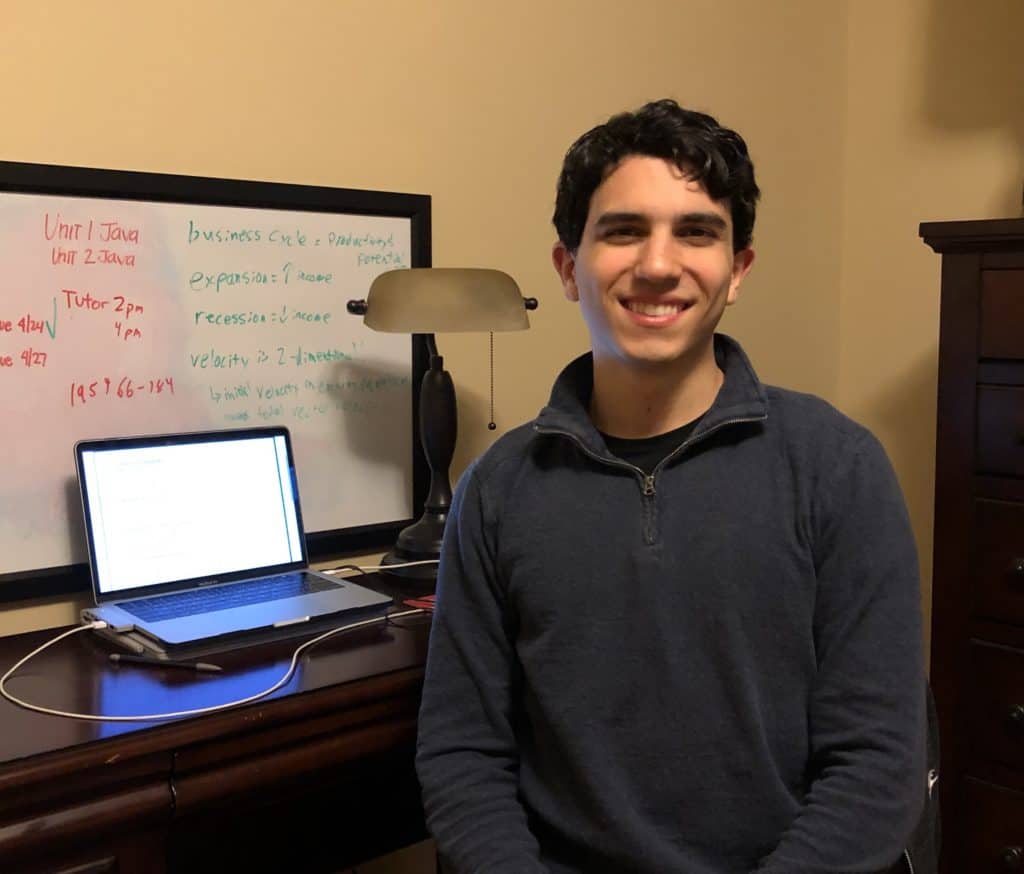
When traditional face-to-face classes ended on March 16, Nicholas DeSanctis of Ossining, a junior at Stepinac High School, was concerned that other high school students in the area who were suddenly thrust into a challenging learning environment might be in need of guidance in subjects he knew best as an academically top performing student—math and science.
And because DeSanctis had also been actively engaged in Stepinac’s Campus Ministry program donating his time to worthwhile community causes including the school’s massive SOUPer Bowl food drive and helping the homeless, he would provide the tutoring service free of charge from his home-based study via Facetime sessions.
His plan was to schedule tutoring other students around his own daily distance learning requirements that Stepinac implemented for all of its 800 students, leveraging its advanced blending learning platform so that their education continued without interruption. “I felt that the pandemic would probably create a need for other students who might lack the resources or having a hard time adjust to distance learning,” said DeSanctis, adding: “I would be happy to help them continue their education during this crisis.”
As for experience in tutoring, DeSanctis would draw on his knowledge and background in having tutored several classmates, an activity he has enjoyed since his freshman year. He is a member of Stepinac’s Honors Academy, the groundbreaking, small three-year personalized learning program where he has been pursuing advanced studies in engineering and the National Honor Society Chapter.
After discussing his desire to be a volunteer tutor with his parents, an ad was placed in the local newspaper. The initial response was encouraging and DeSanctis found himself providing one-hour sessions to a small group of local freshmen and sophomores in chemistry, geometry, geometry, calculus and Algebra 2.
Because he was not overburdened as tutoring was not limited to weekdays, DeSanctis felt he could accommodate more students. A subsequent Facebook notice attracted students from Yonkers and Long Island. Over the past five weeks, DeSanctis has helped approximately a dozen students from throughout the region, the experience of which has been personally fulfilling, not only because it validated DeSanctis’ belief that there was a need but because of the positive feedback from both the students and their parents.
Before the pandemic outbreak and home-bound restriction, DeSanctis’ spring semester was also shaping up to be busy again preparing for the Stepinac Theatre’s spring musical production and the Honors Academy’s Annual Symposium on American Infrastructure in Decay—both originally scheduled for May.
For this year’s musical, “Something Rotten,” he was cast in the role of William Shakespeare and, as a member of the Engineering Honors Academy, he has been collaborating with other members in college-level research and findings relating to the Infrastructure crisis.
When he graduates from Stepinac next year, DeSanctis will explore continuing his interests in computer science and bio medicine, but will continue helping others.





